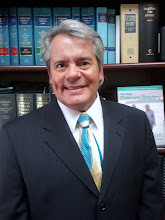As we enter 2012, time is running out to make all of your gifting, planning, and other tax-related decisions which will impact tax year 2011. With the start of the new year, it is also time to consider planning for the 2012 tax year. There is a sunset on the horizon, but it is not as pretty to look at as most. It is the sunset of the "Bush tax cuts," which were extended through 2012 by legislation in 2010. What lies beyond 2012 is too far beyond the horizon to see just yet, and much depends on how Congress deals with the impending change, assuming Congress deals with it at all.
Estate and Gift Tax Exemption
For 2011 and 2012, a $5 million exemption from estate and gift taxes is in place. This unified tax credit is per person, so proper planning between married couples can create an effective $10 million exemption. Estates above the exempted amount are taxed at a 35% top rate. If nothing changes, however, for 2013 and thereafter, the exemption would drop to $1 million, with a top tax rate of 55% for amounts above the exemption.
Will Congress continue the current exemption beyond 2012, or allow it to drop to the $1 million level of a decade ago? Will Congress eliminate the estate tax altogether, as it briefly accomplished for 2010, or will some compromise figure be reached, such as a $3.5 million exemption with a 45% tax rate? It may be too early to tell, but it is not too early to plan. If your estate lies between $1 million and $10 million in value, it may be wise to consider reducing the size of your taxable estate through charitable giving, the establishment of trusts, and other available mechanisms. Schedule some time to talk over your estate plan with a knowledgeable and experienced estate planning attorney, who can advise and assist you with immediate and long-term planning. In San Diego, contact the Casiano Law Firm for assistance.

